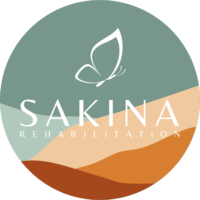In the journey to sobriety, finding ways to express emotions and experiences can be a powerful tool for healing. Art therapy has emerged as an effective method for individuals in addiction recovery to explore their feelings, cope with trauma, and reconnect with their inner selves. At Sakina Alcohol and Mental Health Rehab, we understand the role of art therapy in addiction recovery and incorporate art therapy into our holistic approach to treatment, recognizing its potential to transform the recovery experience. In this blog, we’ll explore the benefits of art therapy in addiction recovery and why it’s a valuable component of a comprehensive treatment plan.
The Role of Art Therapy in Recovery
Art therapy is a form of expressive therapy that uses the creative process of making art to improve a person’s physical, mental, and emotional well-being. The role of art therapy in addiction recovery is to provide a safe and supportive environment where individuals can express themselves without words, process difficult emotions, and gain insights into their behaviors and patterns.
1. Expressing Emotions Through Creativity
One of the primary benefits of art therapy is its ability to help individuals express emotions that may be difficult to articulate through words. Many people struggling with addiction have experienced trauma or deep-seated emotional pain that is challenging to confront. Art therapy allows them to explore these feelings in a non-verbal, creative way. At Sakina, we provide various art therapy sessions that encourage clients to use different mediums—such as painting, drawing, or sculpting—to express their inner world.
2. Processing Trauma and Pain
Trauma is often at the root of addiction, and addressing this trauma is a crucial part of the recovery process. The role of art therapy in addiction recovery is particularly beneficial in helping individuals process and make sense of their traumatic experiences. By creating art, clients can externalize their pain and begin to work through it in a therapeutic setting. This process can be incredibly cathartic and lead to significant emotional healing.
3. Building Self-Esteem and Confidence
Addiction can erode an individual’s self-esteem, leaving them feeling worthless or incapable of change. Art therapy helps rebuild self-esteem by allowing individuals to create something tangible and meaningful. The act of creating art can be empowering, giving clients a sense of accomplishment and pride in their work. At Sakina, our art therapy sessions are designed to boost confidence and encourage self-expression, helping clients reconnect with their strengths and capabilities.
4. Enhancing Self-Awareness
Self-awareness is a key component of recovery. Through art therapy, individuals can gain a deeper understanding of their thoughts, emotions, and behaviors. The role of art therapy in addiction recovery is to provide a reflective space where clients can explore their inner landscapes and identify patterns that may have contributed to their addiction. This increased self-awareness is crucial for making positive changes and sustaining long-term sobriety.
5. Fostering Mindfulness and Presence
Art therapy encourages mindfulness by focusing on the creative process and staying present in the moment. Engaging in artistic activities can be meditative, helping individuals quiet their minds and reduce stress. At Sakina, we integrate mindfulness into our art therapy sessions, teaching clients to use art as a tool for staying grounded and centered during their recovery journey.
How Sakina Integrates Art Therapy into Recovery Programs
At Sakina Alcohol and Mental Health Rehab, we believe that art therapy is a powerful tool for healing and self-discovery. Our recovery programs include a variety of art therapy options that cater to the unique needs and interests of our clients.
1. Personalized Art Therapy Sessions
We offer personalized art therapy sessions that are tailored to each client’s specific needs and goals. Whether an individual is new to art or has previous experience, our therapists work with clients to create a safe and supportive environment where they can explore their creativity and emotions. These sessions are designed to help clients express themselves, process their experiences, and build confidence in their recovery journey.
2. Group Art Therapy
In addition to individual sessions, we offer group art therapy, where clients can collaborate and share their creative expressions with others. Group sessions provide a sense of community and support, helping clients feel connected and understood. Sharing art with others can also foster empathy and compassion, which are essential qualities in the recovery process.
3. Integrating Art with Other Therapies
At Sakina, we understand that each client’s recovery journey is unique. That’s why we integrate art therapy with other therapeutic approaches, such as cognitive behavioral therapy (CBT) and mindfulness practices. This holistic approach ensures that clients receive comprehensive care that addresses all aspects of their well-being.
Conclusion: The Healing Power of Art in Recovery
The role of art therapy in addiction recovery is to offer a creative and transformative path to healing. At Sakina Alcohol and Mental Health Rehab, we recognize the profound impact that art therapy can have on the recovery process. By providing clients with a safe space to express themselves, process trauma, and build self-esteem, we help them create a foundation for lasting sobriety.
If you or a loved one is struggling with addiction, consider the benefits of a recovery program that includes art therapy. At Sakina, we’re here to support you every step of the way, offering the tools, guidance, and encouragement needed to achieve a fulfilling life in sobriety.


